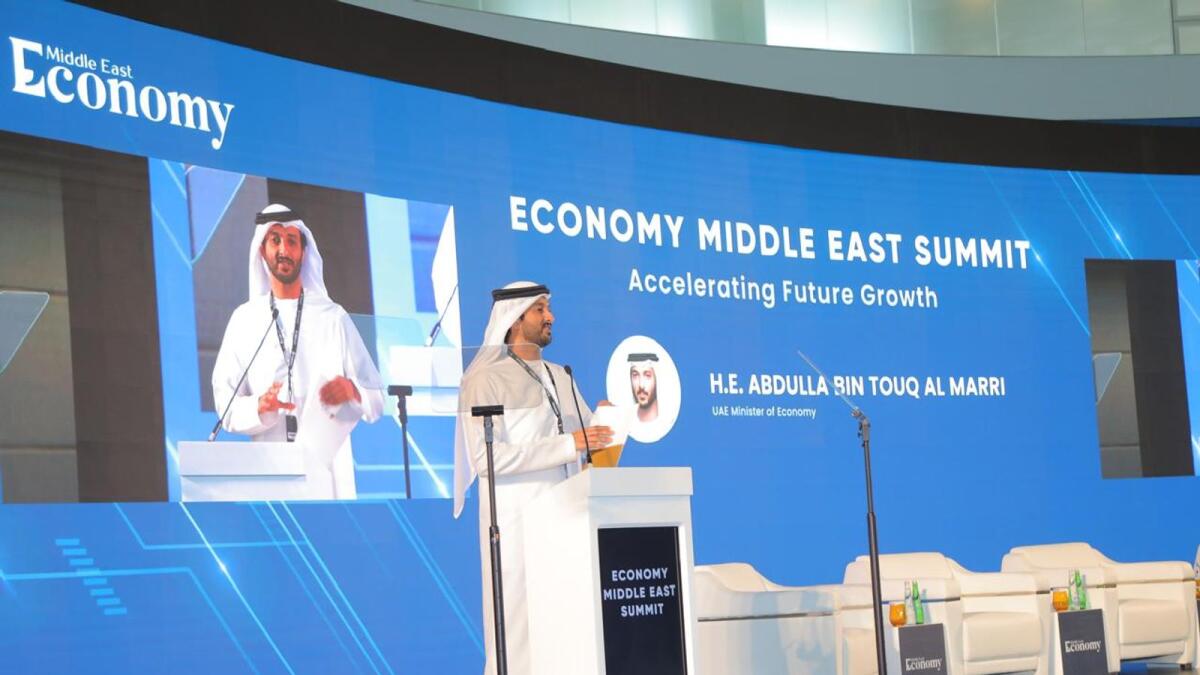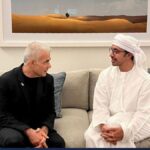The UAE’s Minister of Economy, Abdulla Bin Touq Al Marri, recently spoke at the Economy Middle East Summit 2024, where he highlighted the country’s goal to achieve 7 percent economic growth in 2024. The UAE aims to double its gross domestic product (GDP) to Dh3 trillion by 2030, with a near 8 percent growth rate seen in 2022. Al Marri emphasized the need to design an economy that considers current levels of inflation and interest rates, as the traditional low inflation and low interest rate conditions are no longer the norm.
The UAE Central Bank projected a 4.2 percent growth for 2024, while the World Bank raised its projected growth for the country to 3.9 percent in 2024 and 4.1 percent in 2025. The Economy Middle East Summit 2024 focused on navigating the global economic landscape beyond 2024 and highlighted the Mena region’s economic outlook in the face of new global realities. Al Marri commended the UAE for diversifying its national economy and transitioning towards a knowledge and innovation-based economic model, with the non-oil sector now accounting for 74 percent of the country’s total GDP.
Roberta Gatti, the chief economist for Mena at The World Bank, expressed optimism for 2025, anticipating a resurgence in oil production. She stressed the importance of governments in the Mena region balancing the relationship between the public and private sectors to move away from informal economies. The region is projected to see a GDP rise to 2.7 percent in 2024 from 1.9 percent in 2023. However, Gatti warned of uncertainty due to regional conflicts, rising debt levels, and the need for economic and fiscal revenue diversification among oil-exporting countries.
Naima Al Falasi, senior vice president of portfolio strategy at Mubadala, highlighted the transformative impact of Generative AI and AI on various industries, estimating a $23.5 billion benefit to the GCC economy. Dr. Mahmoud Mohieldin, UN Special Envoy on Financing the 2030 Agenda for Sustainable Development and Executive Director at the International Monetary Fund, acknowledged the challenges faced in economic recovery, with the region lagging behind global growth rates. The panel discussion at the conference also addressed supply issues arising from the Red Sea situation, noting a balancing act in pricing due to the region’s diverse supplier base.
Overall, the UAE’s economic ambitions and commitment to diversification and innovation are positioning the country well for future growth. Global economic challenges and regional dynamics require a strategic approach to policy-making and investment to navigate uncertainties and capitalize on emerging opportunities. With a focus on sustainability, technology adoption, and economic resilience, the UAE is poised to continue its role as a leading destination for business and investment in the Middle East and beyond.











